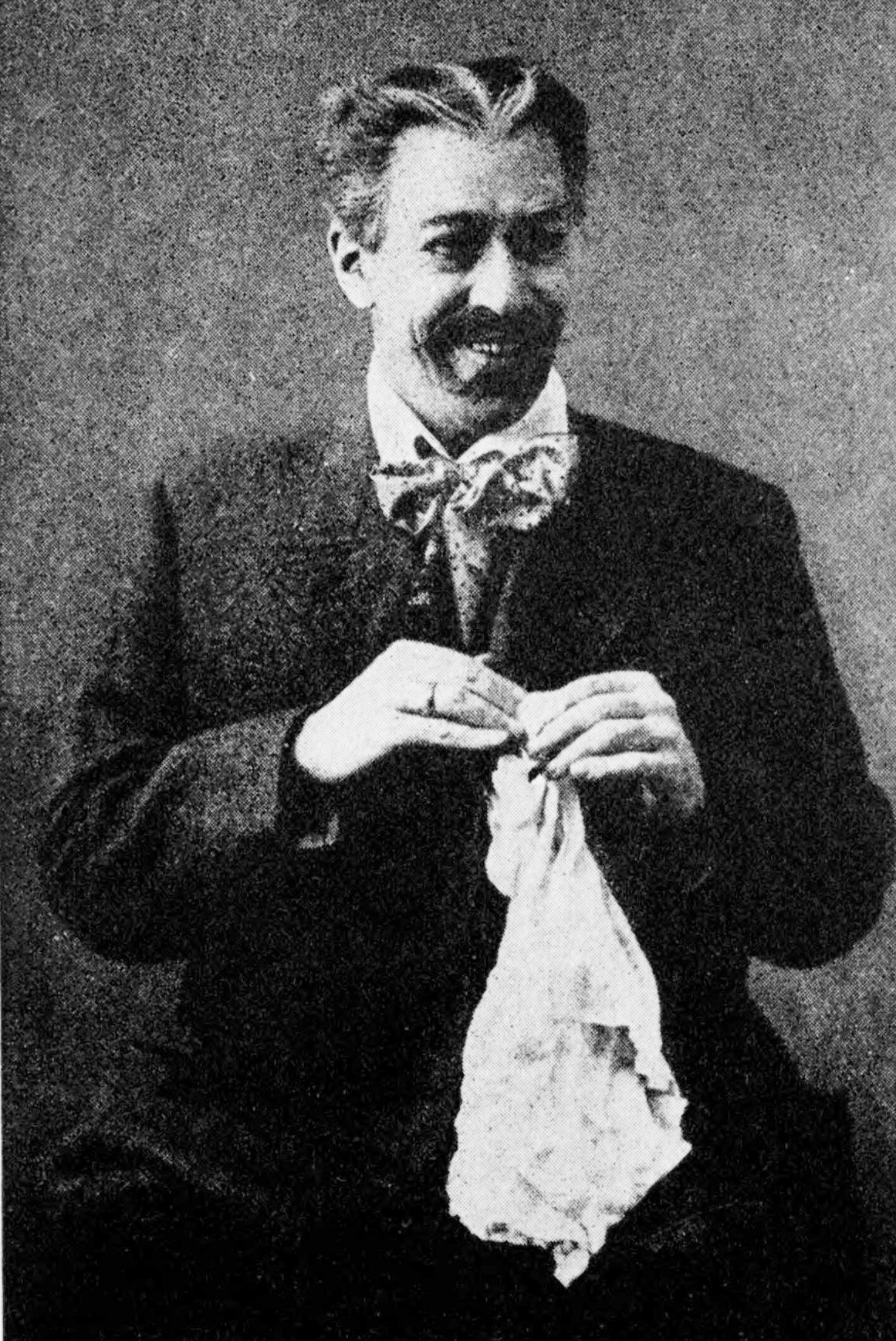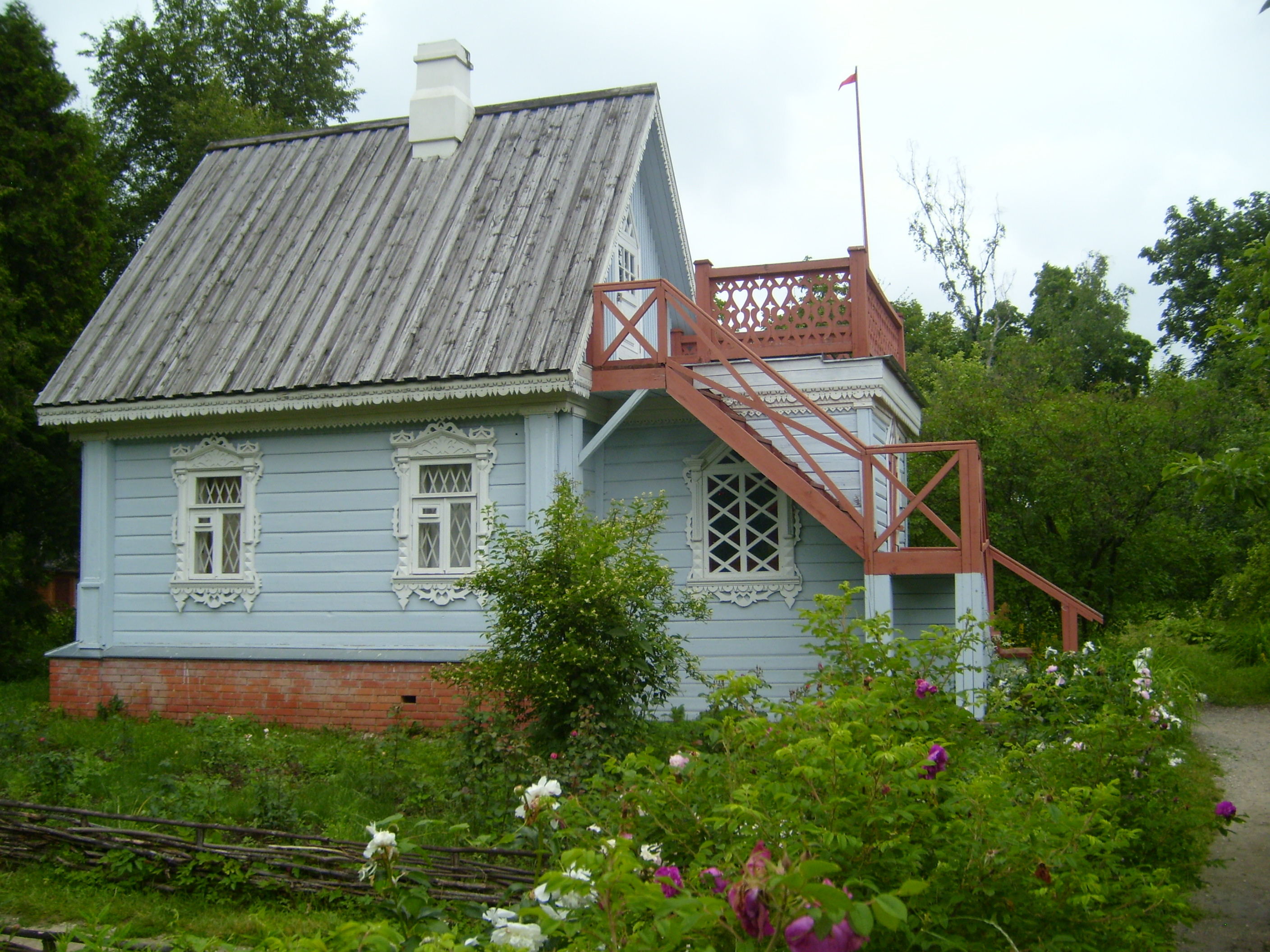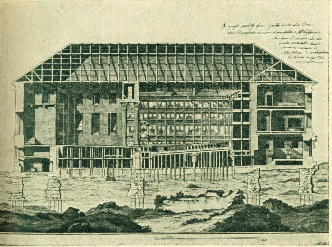|
Alexander Artyom
Alexander Rodionovich Artemyev (russian: Александр Родионович Артемьев; 1842 – 16 May 1914) was a Russian stage actor, associated with Moscow Art Theatre and better known under his stage name Artyom (Артём). Life Born in Stolpovo, Moscow Governorate to a serf peasant single mother, Artemyev managed to enroll into the Moscow Art School and, after graduating it in 1878, started to teach art, painting and calligraphy In early 1880s got interested in theatre and in 1888, after having seen cast as Schastlivtsev in an amateur production of Alexander Ostrovsky's '' The Forest'', he was invited to join Maly Theatre but preferred to become a member of the Art and Literature Society where he had met Konstantin Stanislavski a year earlier. In 1898 Artemyev became a member of the original Moscow Art Theatre troupe and in its first season made himself quite a name, having appeared in '' Tsar Fyodor Ioannovich'' (Bogdan Kryukov), '' Men Above the Law'' (Devo ... [...More Info...] [...Related Items...] OR: [Wikipedia] [Google] [Baidu] |
Moscow Governorate
Moscow Governorate (russian: Московская губерния; pre-reform Russian: ), or the Government of Moscow, was an administrative division (a '' guberniya'') of the Tsardom of Russia, the Russian Empire, and the Russian SFSR, which existed in 1708–1929. Administrative division Moscow Governorate consisted of 13 uyezds (their administrative centres in brackets): * Bogorodsky Uyezd ( Bogorodsk/Noginsk) * Bronnitsky Uyezd (Bronnitsy) * Vereysky Uyezd (Vereya) * Volokolamsky Uyezd (Volokolamsk) * Dmitrovsky Uyezd (Dmitrov) * Zvenigorodsky Uyezd (Zvenigorod) * Klinsky Uyezd (Klin) * Kolomensky Uyezd (Kolomna) * Mozhaysky Uyezd (Mozhaysk) * Moskovsky Uyezd (Moscow) * Podolsky Uyezd (Podolsk) * Ruzsky Uyezd ( Ruza) * Serpukhovsky Uyezd (Serpukhov) History Moscow Governorate, together with seven other governorates, was established on , 1708, by Tsar Peter the Great's edict. [...More Info...] [...Related Items...] OR: [Wikipedia] [Google] [Baidu] |
Tsar Fyodor Ioannovich
''Tsar Fyodor Ioannovich'' (russian: Царь Фёдор Иоаннович, old orthography: Царь Ѳедоръ Іоанновичъ) is a 1868 historical drama by Aleksey Konstantinovich Tolstoy.Banham (1998, 1115) and Moser (1992, 270). It is the second part of a trilogy that begins with ''The Death of Ivan the Terrible'' and concludes with ''Tsar Boris''.Moser (1992, 270). All three plays were banned by the censor.Hartnoll (1983, 831). ''Tsar Fyodor'' is written in blank verse and was influenced by the work of William Shakespeare, Casimir Delavigne, and Edward Bulwer-Lytton Edward George Earle Lytton Bulwer-Lytton, 1st Baron Lytton, PC (25 May 180318 January 1873) was an English writer and politician. He served as a Whig member of Parliament from 1831 to 1841 and a Conservative from 1851 to 1866. He was Secret .... It dramatises the story of Feodor I of Russia, whom the play portrays as a good man who is a weak, ineffectual ruler.Eriksen, MacLeod, and Wisneski (1960, ... [...More Info...] [...Related Items...] OR: [Wikipedia] [Google] [Baidu] |
Russian Stage Actors
Russian(s) refers to anything related to Russia, including: *Russians (, ''russkiye''), an ethnic group of the East Slavic peoples, primarily living in Russia and neighboring countries * Rossiyane (), Russian language term for all citizens and people of Russia, regardless of ethnicity * Russophone, Russian-speaking person (, ''russkogovoryashchy'', ''russkoyazychny'') *Russian language, the most widely spoken of the Slavic languages *Russian alphabet *Russian cuisine * Russian culture * Russian studies Russian may also refer to: *Russian dressing *''The Russians'', a book by Hedrick Smith * Russian (comics), fictional Marvel Comics supervillain from ''The Punisher'' series *Russian (solitaire), a card game * "Russians" (song), from the album ''The Dream of the Blue Turtles'' by Sting *"Russian", from the album '' Tubular Bells 2003'' by Mike Oldfield *"Russian", from the album '' '' by Caravan Palace *Nik Russian, the perpetrator of a con committed in 2002 *The South African name ... [...More Info...] [...Related Items...] OR: [Wikipedia] [Google] [Baidu] |
The Cherry Orchard
''The Cherry Orchard'' (russian: Вишнёвый сад, translit=Vishnyovyi sad) is the last play by Russian playwright Anton Chekhov. Written in 1903, it was first published by ''Znaniye'' (Book Two, 1904), and came out as a separate edition later that year in Saint Petersburg, via A.F. Marks Publishers.Commentaries to Вишневый сад The Complete Chekhov in 30 Volumes. Vol. 13. // Чехов А. П. Вишневый сад: Комедия в 4-х действиях // Чехов А. П. Полное собрание сочинений и писем: В 30 т. Сочинения: В 18 т. / АН СССР. Ин-т мировой лит. им. А. М. Горького. — М.: Наука, 1974—1982. Т. 13. Пьесы. 1895—1904. — М.: Наука, 1978. — С. 195—254. It opened ... [...More Info...] [...Related Items...] OR: [Wikipedia] [Google] [Baidu] |
Anton Chekhov
Anton Pavlovich Chekhov (; 29 January 1860 Old Style date 17 January. – 15 July 1904 Old Style date 2 July.) was a Russian playwright and short-story writer who is considered to be one of the greatest writers of all time. His career as a playwright produced four classics, and his best short stories are held in high esteem by writers and critics."Stories ... which are among the supreme achievements in prose narrative.Vodka miniatures, belching and angry cats George Steiner's review of ''The Undiscovered Chekhov'', in ''The Observer'', 13 May 2001. Retrieved 16 February 2007. Along with Henrik Ibsen and August Strindberg, Chekhov is often referred to as one of the three seminal figures in the birth of early modernism in the theatre. Chekhov was a physician by profession. "Medicine is my lawful wife", he once said, "and literature is my mistress." Chekhov renounced the theatre after the reception of ''The Seagull'' in 1896, but the play was revived to acclaim in 189 ... [...More Info...] [...Related Items...] OR: [Wikipedia] [Google] [Baidu] |
Uncle Vanya
''Uncle Vanya'' ( rus, Дя́дя Ва́ня, r=Dyádya Ványa, p=ˈdʲædʲə ˈvanʲə) is a play by the Russian playwright Anton Chekhov. It was first published in 1898, and was first produced in 1899 by the Moscow Art Theatre under the direction of Konstantin Stanislavski. The play portrays the visit of an elderly professor and his glamorous, much younger second wife, Yelena, to the rural estate that supports their urban lifestyle. Two friends—Vanya, brother of the professor's late first wife, who has long managed the estate, and Astrov, the local doctor—both fall under Yelena's spell, while bemoaning the ''ennui'' of their provincial existence. Sonya, the professor's daughter by his first wife, who has worked with Vanya to keep the estate going, suffers from her unrequited feelings for Astrov. Matters are brought to a crisis when the professor announces his intention to sell the estate, Vanya and Sonya's home, with a view to investing the proceeds to achieve a higher inco ... [...More Info...] [...Related Items...] OR: [Wikipedia] [Google] [Baidu] |
The Seagull
''The Seagull'' ( rus, Ча́йка, r=Cháyka, links=no) is a play by Russian dramatist Anton Chekhov, written in 1895 and first produced in 1896. ''The Seagull'' is generally considered to be the first of his four major plays. It dramatises the romantic and artistic conflicts between four characters: the famous middlebrow story writer Boris Trigorin, the ingenue Nina, the fading actress Irina Arkadina, and her son the symbolist playwright Konstantin Treplev. Like Chekhov's other full-length plays, ''The Seagull'' relies upon an ensemble cast of diverse, fully developed characters. In contrast to the melodrama of mainstream 19th-century theatre, lurid actions (such as Konstantin's suicide attempts) are not shown onstage. Characters tend to speak in subtext rather than directly. The character Trigorin is considered one of Chekhov's greatest male roles. The opening night of the first production was a famous failure. Vera Komissarzhevskaya, playing Nina, was so intimidated b ... [...More Info...] [...Related Items...] OR: [Wikipedia] [Google] [Baidu] |
Men Above The Law
''Men Above the Law'' (russian: Самоуправцы, translit=Samoupravtsy) is a tragedy in five acts by Alexey Pisemsky first published in the No.2, February 1867 issue of ''Vsemirny Trud'' magazine.Roshal, A. ACommentaries to СамоуправцыThe Works of A.Pisemsky in 9 volumes. Vol.9. Ogonyok Library / Pravda Publishers.1959 History The play was written during the summer and autumn of 1865 and completed on 31 October. Its plotline was based upon the real story of a sadist landowner N.F. Katenin who in the mid-1790s in the basements of his Zanino estate in Kostroma Governorate habitually tortured peasants. In November Pisemsky started the procedures necessary for the play to be produced on stage, giving it the provisional title ''The Yekayerinisk Eagles'' (Екатерининские орлы). The censorship committee's permission was received in the early 1866, but only after the author agreed to remove several scenes which were deemed exceedingly violent. In late ... [...More Info...] [...Related Items...] OR: [Wikipedia] [Google] [Baidu] |
Konstantin Stanislavski
Konstantin Sergeyevich Stanislavski ( Alekseyev; russian: Константин Сергеевич Станиславский, p=kənstɐnʲˈtʲin sʲɪrˈgʲejɪvʲɪtɕ stənʲɪˈslafskʲɪj; 7 August 1938) was a seminal Russian Soviet Federative Socialist Republic, Soviet Russian theatre practitioner. He was widely recognized as an outstanding character actor and the many List of productions directed by Konstantin Stanislavski, productions that he directed garnered him a reputation as one of the leading theatre directors of his generation. His principal fame and influence, however, rests on Stanislavski's system, his "system" of actor training, preparation, and rehearsal technique. Stanislavski (his stage name) performed and directed as an Amateur theatre, amateur until the age of 33, when he co-founded the world-famous Moscow Art Theatre (MAT) company with Vladimir Nemirovich-Danchenko, following a legendary 18-hour discussion. Its influential tours of Europe (1906) and ... [...More Info...] [...Related Items...] OR: [Wikipedia] [Google] [Baidu] |
Russian Empire
The Russian Empire was an empire and the final period of the Russian monarchy from 1721 to 1917, ruling across large parts of Eurasia. It succeeded the Tsardom of Russia following the Treaty of Nystad, which ended the Great Northern War. The rise of the Russian Empire coincided with the decline of neighbouring rival powers: the Swedish Empire, the Polish–Lithuanian Commonwealth, Qajar Iran, the Ottoman Empire, and Qing China. It also held colonies in North America between 1799 and 1867. Covering an area of approximately , it remains the third-largest empire in history, surpassed only by the British Empire and the Mongol Empire; it ruled over a population of 125.6 million people per the 1897 Russian census, which was the only census carried out during the entire imperial period. Owing to its geographic extent across three continents at its peak, it featured great ethnic, linguistic, religious, and economic diversity. From the 10th–17th centuries, the land ... [...More Info...] [...Related Items...] OR: [Wikipedia] [Google] [Baidu] |
Maly Theatre (Moscow)
Maly Theatre (, literally ''Small Theatre'' as opposed to nearby Bolshoi, or ''Grand'', opera theatre) is a theatre in Moscow, Russia, principally associated with the production of plays. Established in 1806Londre, Margot p. 307 and operating on its present site on the Theatre Square since 1824, the theatre traces its history to the Moscow University drama company, established in 1756. In the 19th century, Maly was "universally recognized in Russia as the leading dramatic theatre of the century", and was the home stage for Mikhail Shchepkin and Maria Yermolova. 40 of Alexander Ostrovsky's 54 plays premiered at Maly, and the theatre was known as The House of Ostrovsky.Londre, Margot p. 306 The Maly Theatre in Moscow and Alexandrinsky Theatre in Saint Petersburg "to a great extent determined the development of Russian theatre during the 19th and 20th century". Maly Theatre positions itself as a traditional drama theatre that produces classical heritage plays. For example, the 200 ... [...More Info...] [...Related Items...] OR: [Wikipedia] [Google] [Baidu] |
The Forest (play)
''The Forest'' (russian: Лес, translit=Les) is a play by Alexander Ostrovsky written in 1870 and first published in the January 1871 issue of ''Otechestvennye Zapiski'' magazine. It was premiered at Saint Petersburg's Alexandrinsky Theatre on 1 November 1871, as a benefit for actor Fyodor Burdin. In Moscow's Maly Theatre it was performed on November 26, 1871. History Ostrovsky started writing ''The Forest'' in the last days of summer 1870 in his Shchelykovo estate. Initially it was supposed to be a family comedy but gradually the satirical line in it strengthened with Nestchastlivtsev, originally a marginal character, becoming the main hero. The play's first informal public reading took place at the house of Alexander's brother, Mikhail Ostrovsky. Following the latter's advice, soon after the publication of the play, Ostrovsky nominated it for the prestigious Uvarov Prize but hasn't got it. The jury's decision has been criticized by Pavel Annenkov who wrote: "Alexander Nikola ... [...More Info...] [...Related Items...] OR: [Wikipedia] [Google] [Baidu] |







